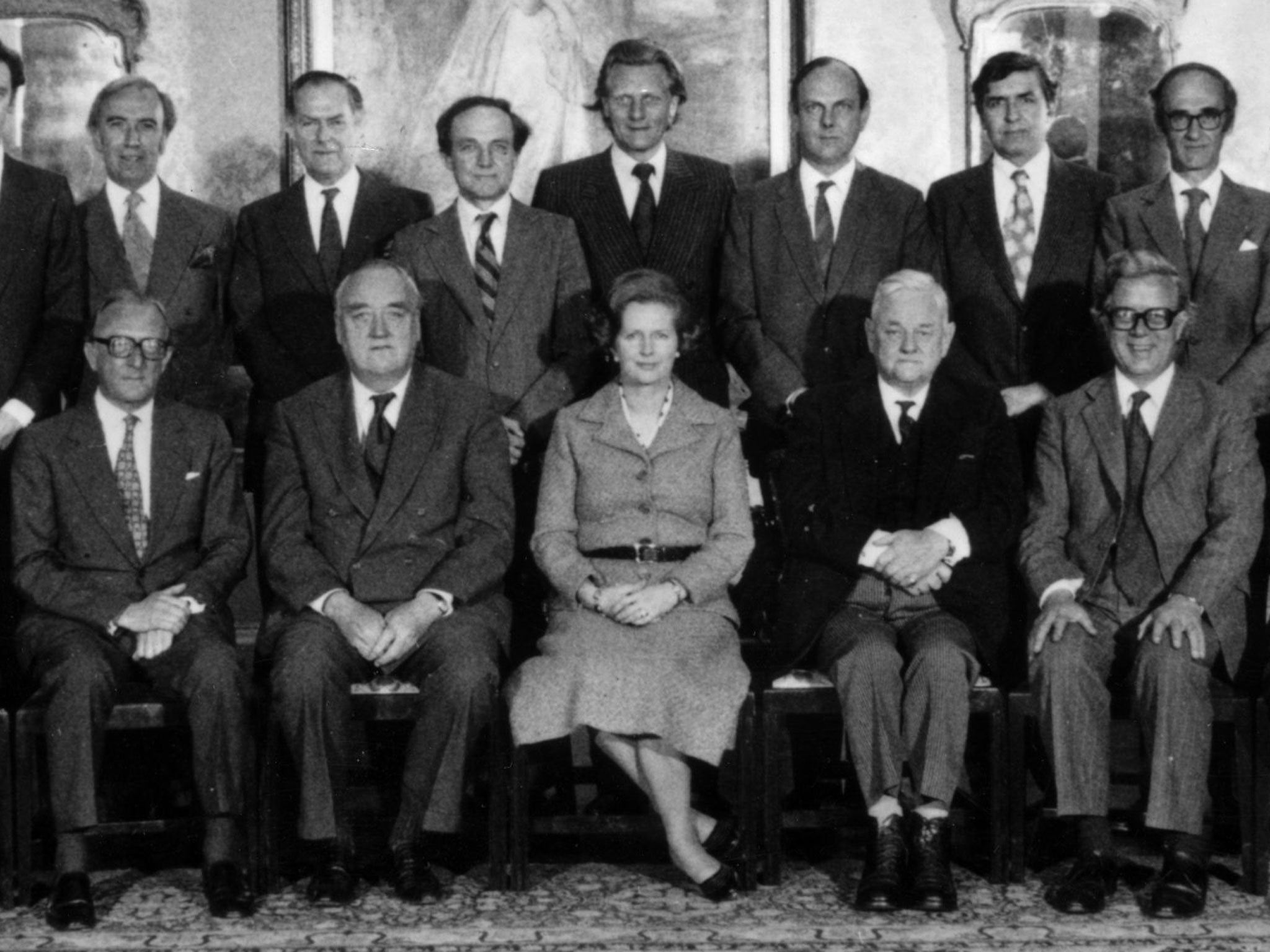Many who served in Mrs Thatcher's Cabinet did not live to see her funeral - but this was a fitting tribute to all she achieved
Lord Fowler, a member of Cabinet from 1981-90, reflects on absent colleagues

On a fine morning in September 1997, I went to another funeral where crowds lined the streets. It was for Princess Diana. The context was of course different. She was a young woman robbed of her life far too early. The funeral of Margaret Thatcher was a fitting and moving end for the grand old woman of British politics.
At St Paul’s yesterday the words were less dramatic and the music was that of Elgar and Holst. But the feeling of most of us there was just as intense. We had come, quite simply, to pay our respects to a great woman.
From inside we heard the half-muffled bell signalling the arrival of the cortege; from outside the sound of the military band and shouted orders. Then the coffin draped in the Union Jack slowly made its way down the centre of the cathedral on the shoulders of servicemen symbolising those who fought in the Falklands.
From yesterday’s service we will remember one person in particular. Amanda Thatcher spoke her words with confidence and a maturity beyond her years. Margaret Thatcher once said to me that “it is the family that comes first”. She would have been so proud of her granddaughter.
Sitting, as I was, in the midst of a reunion of Thatcher cabinet ministers, my thoughts went back to the beginning. It scarcely seems possible that it was 34 years ago that the members of Margaret Thatcher’s first cabinet trooped up to the drawing room at Number 10, smiled at the photographer, and then retraced our steps down to the cabinet room to grapple with the serious business of government.
In the intervening years, 14 of the that original 24 have died. Whatever Margaret Thatcher achieved, she could not have done it without their help. For me their ghosts were very much present at St Paul’s.
The most substantial ghost in every way was Willie Whitelaw. He skilfully hid his political shrewdness behind a mask of affability but, make no mistake, his contribution in handling the party and the Prime Minister in those years was indispensable. For me he was a particular ally in pushing through our policy on Aids, against the scepticism of Downing Street and Conservative Central Office.
Outside Westminster on visits, he had a stock response of “jolly good , jolly good” when meeting the public. Just occasionally it brought him to grief, as when on a prison visit an inmate told him that he was serving a life sentence.
Then there was Keith Joseph whose decision not to contest the party leadership in 1975 opened the way for the Thatcher victory. He not only served her with total loyalty (to the point of putting up with frontal attacks on him by the Prime Minister), he also provided much of the intellectual force for the new government.
There were others also. The Lord Chancellor Quintin Hailsham was erratic and capable of flying off the handle without warning but he was also brilliant and a scrupulously honest politician who could be relied on to keep others honest as well.
Most of the survivors of the 1979 cabinet are now in the Lords – with one extraordinary omission, John Nott, the Defence Secretary who stood steadfastly by her throughout the Falklands victory.
As for myself, I was lucky to be there at all in that 1979 cabinet. I had a slightly equivocal position. I had been put in charge of the Transport Department. The drawback, said Margaret, was that there was only authority to pay 22 cabinet ministers. I was number 23 and initially paid at the rate of a Chief Whip. It was a position which concerned her more than me.
But I was lucky in another way. I had not voted for Margaret Thatcher in the 1975 leadership election. MPs like myself and my university friends Ken Clarke and Leon Brittan doubted whether the party had made the right choice. I was anything but convinced that she was the person to take us back into government.
In fact, like Churchill, she was exactly the right person at the right time. The 1970s were years of decline culminating in the winter of discontent in 1979. I recognise the pain caused in the 1980s when we sought to modernise. Some of the pain was inevitable; some we might have managed better.
I hope the Thatcher critics will acknowledge the shambles and at times the disgrace of the 1970s . Over-powerful unions and weak management; industry incapable of producing the goods the public wanted; public services run on a take it or leave it basis; health service strikes which jeopardised the lives of patients; and a general economic decline that affected young and old alike.
There should be no mistake. The legacy that Margaret Thatcher inherited in May 1979 was dismal. She deserves the utmost credit for leading the recovery. Of course she made mistakes, but that was nothing compared to what she achieved. For me, yesterday’s service at St Paul’s was a celebration of that achievement.
Lord Fowler was a member of Margaret Thatcher’s cabinet from 1979 -1990
Join our commenting forum
Join thought-provoking conversations, follow other Independent readers and see their replies
Comments